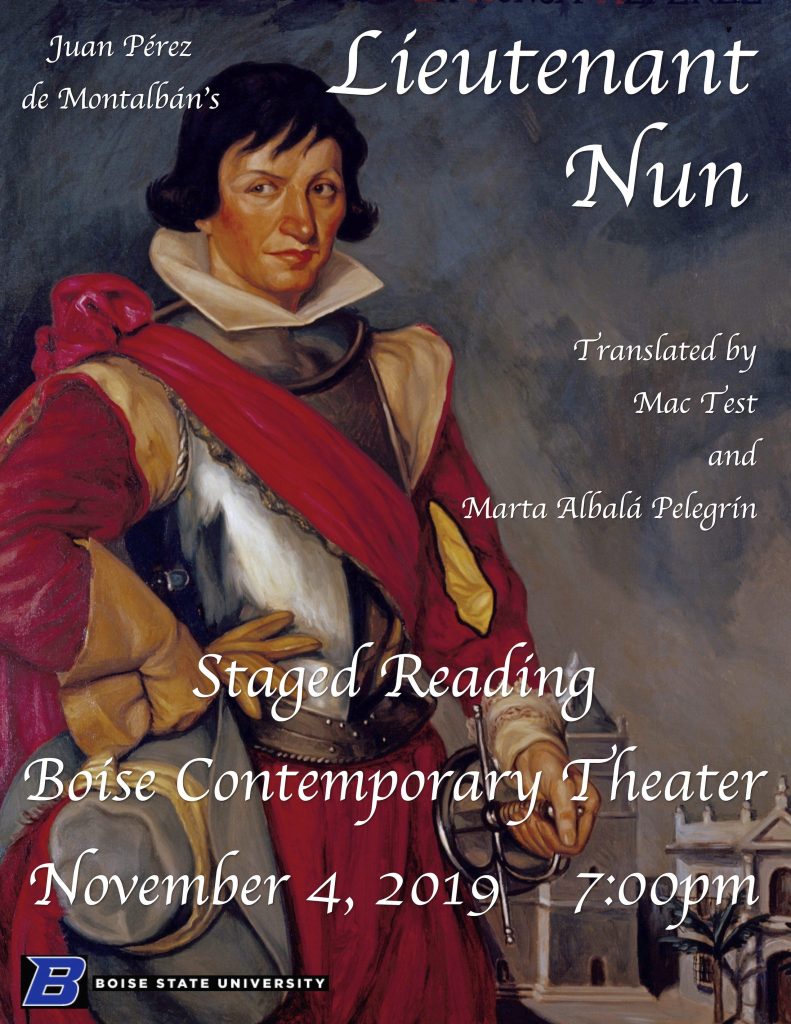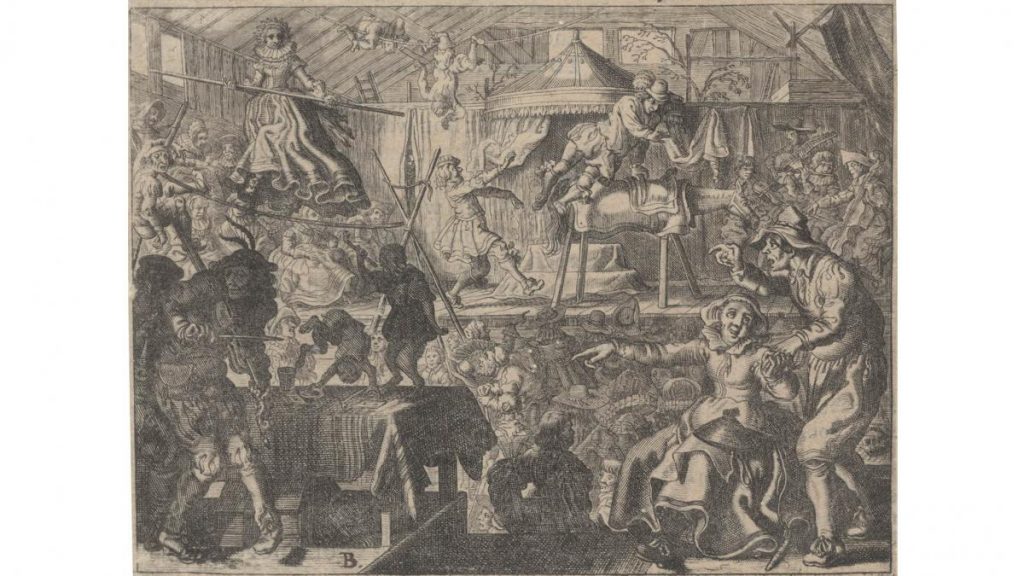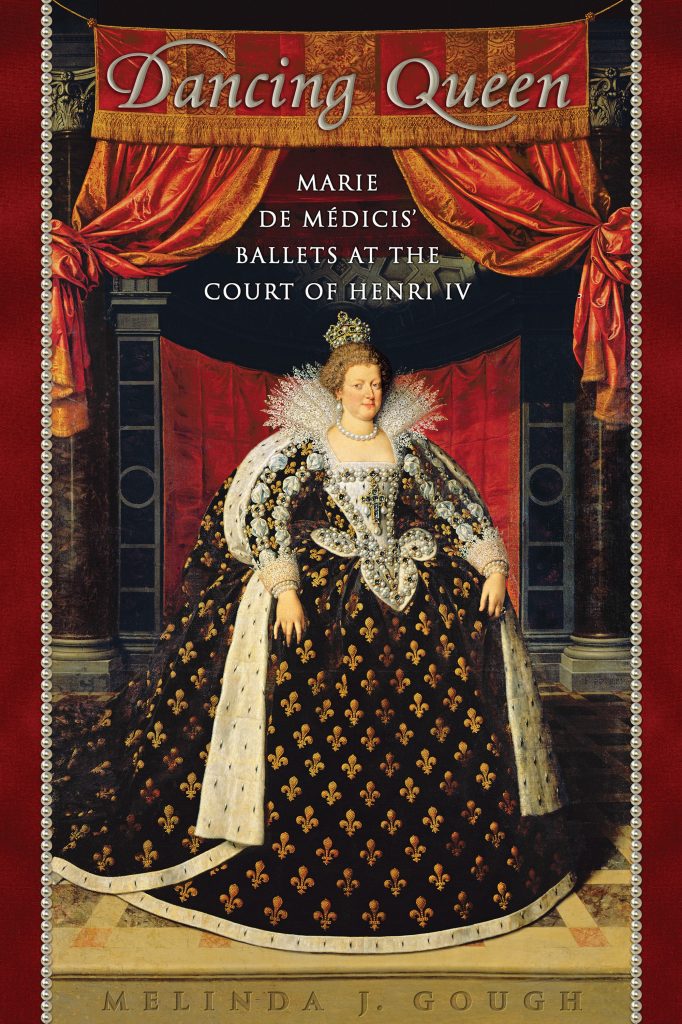Find updates about the project, its people, and publications here…
November 4, ’19: Staged Reading of Juan Pérez de Montalban’s Lieutenant Nun
Monday November 4 2019, at 7 pm, Boise Contemporary Theater will be doing a staged reading of the Lieutenant Nun (La monja alférez), translated by Mac Test (together with Marta Albalá Pelegrín). The play is based on the historical personage of Catalina de Erauso, who fought as a conquistador in Peru and Chile from 1600-1617. Amazingly, upon returning to Europe Erauso received a Papal Dispensation from Pope Urban VIII to remain cross-dressed and live as a transgender person. FREE TO THE PUBLIC. No tickets necessary.
Read more about this project, and its connections with Engendering the Stage here: https://www.boiseweekly.com/boise/staged-reading-of-lieutenant-nun-at-bct/Content?oid=19634879

October ’19: Announcing “Engendering the stage: the records of early modern performance” — a new archival research project led by Clare McManus and Lucy Munro
This January 2020, with funding from the Leverhulme Trust, a research team led by Professor Clare McManus (University of Roehampton) and Professor Lucy Munro (King’s College London) will reassess the archival records of early modern English drama to highlight the contributions of a diverse range of performers to theatrical culture in the sixteenth and seventeenth centuries.

Focusing on the period between the accession of Mary Tudor in 1553 and the injunction against boy-actresses issued by Charles II in 1662, the project will reassess the contribution of female, male and, in our current terms, trans, nonbinary or gender nonconforming performers to the commercial, academic, court, civic and household stages of early modern England.
The research team is currently seeking applicants for one postdoctoral research position and two Ph.D. studentships. You can also read more about the project itself here.
APRIL ’19. Elizabeth Cruz-Petersen’s article, “Swordplay Uncloaked: Women as Active Agents in Ana Caro’s Valor, agravio, y mujer and Lope de Vega’s La pobreza estimada,” is now out in Comedia Performance 16 (2019): pp.86-102.
ABSTRACT: This article explores possible dance and swordplay choreography in Felix Lope de Vega’s La pobreza estimada (1597-1603) and Ana Caro’s Valor, agravio, y mujer (1630s-1640s) in hopes of shedding light on the manner in which women as active agents or bodies in transaction contributed to the sociopolitical discourse of the space in theater. The excerpts and images examined from treatises on acting, dance, and swordsmanship, such as Alonso López Pinciano’s Philosophía antigua poética (1596), Juan de Esquivel Navarro’s Discursos sobre el arte del danzado (1642), and Luis Pacheco de Narváez’s Libro de las grandezas de la espada (1600), help the reader envision women wielding swords in early modern Spanish theater.
MARCH ’19. Melinda Gough’s book, Dancing Queen, is now out with University of Toronto Press!

Under glittering lights in the Louvre palace, the French court ballets danced by Queen Marie de Médicis prior to Henri IV’s assassination in 1610 attracted thousands of spectators ranging from pickpockets to ambassadors from across Europe. Drawing on newly discovered primary sources as well as theories and methodologies derived from literary studies, political history, musicology, dance studies, and women’s and gender studies, Dancing Queen traces how Marie’s ballets authorized her incipient political authority through innovative verbal and visual imagery, avant-garde musical developments, and ceremonial arrangements of objects and bodies in space. Making use of women’s “semi-official” status as political agents, Marie’s ballets also manipulated the subtle social and cultural codes of international courtly society in order to more deftly navigate rivalries and alliances both at home and abroad. At times the queen’s productions could challenge Henri IV’s immediate interests, contesting the influence enjoyed by his mistresses or giving space to implied critiques of official foreign policy, for example. Such defenses of Marie’s own position, though, took shape as part of a larger governmental program designed to promote the French consort queen’s political authority not in its own right but as a means of maintaining power for the new Bourbon monarchy in the event of Henri IV’s untimely death. Click HERE to find out more and purchase.
| “Dancing Queen is a meticulous, richly textured work of scholarship that makes an important contribution to understandings of early modern queenship and court culture as well as to the history of court ballet. Melinda J. Gough’s discovery and attentive synthesis of previously unknown archival documents are truly meaningful and revise the standard histories of French court ballet.” Ellen R. Welch, Department of Romance Studies, The University of North Carolina at Chapel Hill |
